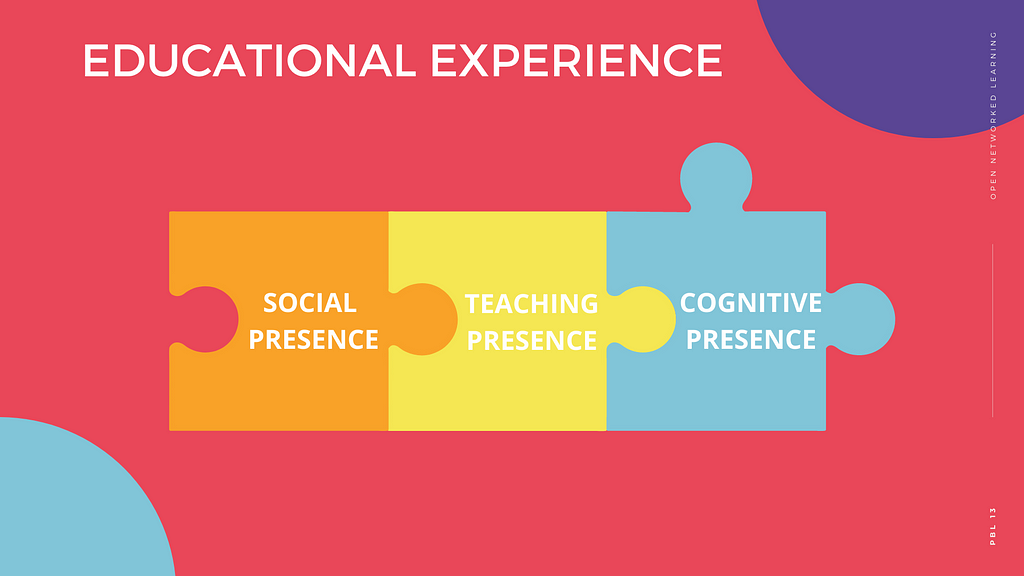For every topic we have group leads and this was the topic I co-lead with. Our scenario was the following:
“This year has seen higher education institutions respond to the impact of Covid-19 in an unprecedented manner. Due to this “emergency remote teaching and learning” situation I have been forced to move online and I have learnt a lot. But it seems that many of my colleagues, including myself, simply have copied our campus activities into synchronous online sessions and are providing students with material for self-study. I experience that we lose a lot of student engagement and a sense of community, therefore I believe that I need to re-think my teaching practice. It also feels like my role is changing towards being a designer for learning and to be more of a facilitator, which is new to me. When searching for support in this area, I came across the Community of Inquiry and some other models that looks interesting. But I am not sure how to use these as tools for design and how do I get everyone onboard, it seems like a lot to consider?!”
By now we’ve already worked together as a group for the past 3 topics and so our workflow was a lot quicker as we were used to our ways of researching a topic.
With this scenario in mind, we decided to focus on researching the best practices for an online educational experience. We based our last research topic on a 5 stage model by Gilly Salmon, so this week we decided to continue the trend but instead take another model and create our own version. So we based our new model on a model used by Dr Debra Beck called The Educational Experience.
We ended up simplifying this module into 3 main components that make up the Educational Experience seen here below:
 PBL 13 Educational Experience Model
PBL 13 Educational Experience Model
We used Canva (a tool that I regularly use for lots of things) to create a wonderful presentation which you can find here.
It’s nearing the end of my ONL experience of which I am feeling glad and sad at the same time.
